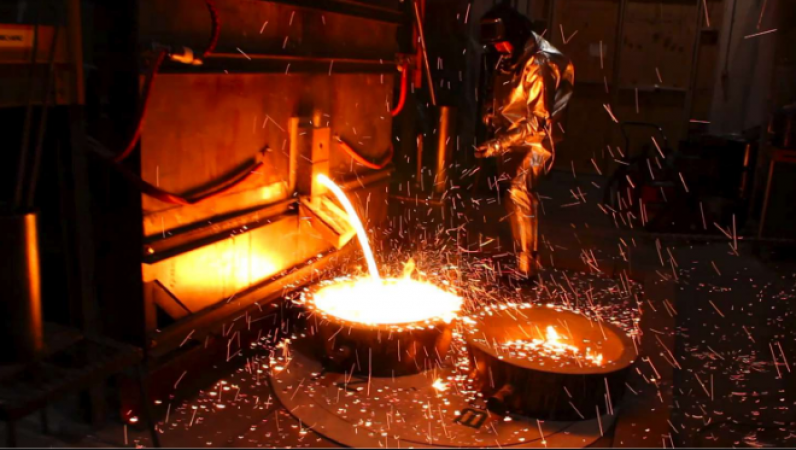
New Delhi: The production of steel contributes significantly to the global economy in a number of ways, including:
1. Infrastructure Development: Steel is a fundamental material used in the construction of infrastructure projects such as buildings, bridges, roads, railways, and ports. The growth of steel production enables the development of essential infrastructure, which, in turn, supports economic growth and stimulates other industries.
2. Industrial Manufacturing: Steel is a primary material for manufacturing sectors such as automotive, machinery, appliances, and transportation equipment. These industries rely on steel for the production of components and parts, contributing to economic activity and employment.
Also Read: Narendra Modi Govt: 9 Years of Transforming India- A Look at Achievements
3. Job Creation: The steel industry itself is a major employer, providing jobs across various stages of production, including mining, processing, manufacturing, and distribution. This employment generates income for workers, stimulates consumer spending, and supports local economies.
4. International Trade: Steel is a globally traded commodity, and the steel industry plays a crucial role in international trade. Countries with a competitive steel sector can export steel products, generating revenue, improving trade balances, and promoting economic integration.
5. Value Chain Effects: Steel production has a significant multiplier effect on the economy. As the demand for steel increases, it stimulates related industries such as mining, raw material extraction, transportation, energy, engineering services, and construction. These sectors experience growth and create additional employment opportunities.
Also Read: Conflicting messages from Saudi Arabia and Russia weighed on oil prices in early Friday trade
6.Economic Indicators: Steel production and consumption serve as important indicators of economic activity. Rising steel production often reflects economic expansion, increased investment, and consumer confidence. It is closely watched by policymakers, economists, and investors to assess overall economic health and future trends.
7. Technological Innovation: The steel industry invests in research and development to improve production processes, increase efficiency, and develop new steel grades and applications. Technological advancements in steel production contribute to productivity gains, cost reduction, and the development of advanced materials, driving innovation across various sectors.
8. Economic Resilience: A strong domestic steel industry enhances a country's economic resilience by reducing dependence on steel imports and protecting against supply chain disruptions. Self-sufficiency in steel production helps stabilize prices, ensures availability of critical infrastructure materials, and supports national security interests.
Also Read: How does the war in Russia and Ukraine affect Germany's economy?
Overall, the production of steel is a crucial industry that supports economic expansion, job creation, trade, and infrastructure growth. Its contributions are extensive and go beyond the steel industry alone; they have an impact on many different fields and are essential to the global economy.